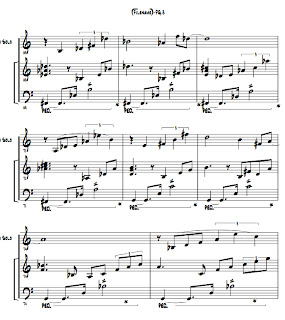It's a hard truth but nonetheless true.
Please read this essay by Ben Stein; I believe this is a very important, candid declaration.
"In God we trust"
-----
The following was written by Ben
Stein and recited by him on CBS Sunday Morning Commentary.
My confession:
I don't like getting pushed around for
being a Jew, and I don't think Christians like getting pushed around for
being Christians. I think people who believe in God are sick and
tired of getting pushed around, period. I have no idea where the
concept came from, that America is an explicitly atheist country. I
can't find it in the Constitution and I don't like it being shoved down my
throat...
Or maybe I can put it another way:
where did the idea come from that we should worship celebrities and we
aren't allowed to worship God as we understand Him? I guess that's
a sign that I'm getting old, too. But there are a lot of us who are
wondering where these celebrities came from and where the America
we knew went to.
In light of the many jokes we
send to one another for a laugh, this is a little different: This
is not intended to be a joke; it's not funny, it's intended to get you
thinking.
In light of recent events...
terrorists attack, school shootings, etc.. I think it started when
Madeleine Murray O'Hare (she was murdered, her body found a few years
ago) complained she didn't want prayer in our schools, and we said OK.
Then someone said you better not read the Bible in school...
The Bible says thou shalt not kill; thou shalt not steal, and love your
neighbor as yourself. And we said OK.
Then Dr. Benjamin Spock said we
shouldn't spank our children when they misbehave, because their little
personalities would be warped and we might damage their self-esteem (Dr.
Spock's son committed suicide). We said an expert should know what
he's talking about.. And we said okay..
Now we're asking ourselves why our
children have no conscience, why they don't know right from wrong, and
why it doesn't bother them to kill strangers, their classmates, and
themselves.
Probably, if we think about it long and
hard enough, we can figure it out. I think it has a great deal
to do with 'WE REAP WHAT WE SOW.'
Funny how simple it is for people
to trash God and then wonder why the world's going to hell. Funny
how we believe what the newspapers say, but question what the Bible says.
Funny how you can send 'jokes' through e-mail and they spread like
wildfire, but when you start sending messages regarding the Lord, people
think twice about sharing. Funny how lewd, crude, vulgar and
obscene articles pass freely through cyberspace, but public discussion of
God is suppressed in the school and workplace.
Are you laughing yet?
Funny how when you forward this
message, you will not send it to many on your address list because you're
not sure what they believe, or what they will think of you for sending
it.
Funny how we can be more worried
about what other people think of us than what God thinks of us.
Pass it on if you think it has merit.
If not, then just discard it... no one
will know you did. But, if you discard this thought process, don't
sit back and complain about what bad shape the world is in.
My Best Regards, Honestly and
respectfully,
I’m Errol Weiss Schlabach
And I believe and endorse this message.























































